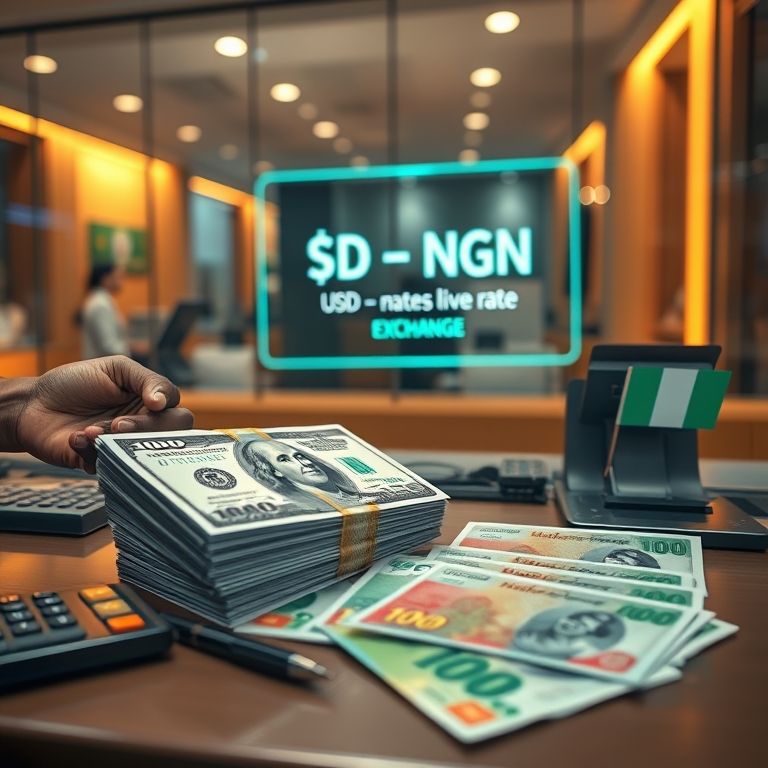how much is $1000 in nigeria currency
How Much Is $1000 in Nigeria Currency?
When you’re planning a transfer, paying overseas vendors, or funding a trading account in Nigeria, the big question is: how much is $1000 in NGN today? The answer isn’t a single number. It depends on the rate you’re offered, plus the fees and spreads from the service you choose. From my conversations with Nigerian traders and friends abroad, the same $1000 can land in your wallet as a mix of real buying power and hidden costs. This piece breaks down the math, shows how the numbers ripple through different markets, and paints a practical picture of trading in today’s Nigeria—where traditional finance and web3 tools collide.

Introduction to the math: rate, spreads, and fees
- The exchange rate is not a single fixed line. Banks, fintechs, and forex dealers all set their own mid-market references, and your actual sale/purchase price includes a spread plus any commission.
- In recent months, the USD/NGN rate has hovered around the 900–1000 NGN per USD range in many formal channels, with wider gaps in some informal markets. A simple calculation isn’t enough—you must compare the total cost of conversion (rate minus spread) and the flat or percentage fees.
- Example rough math: if 1 USD = 950 NGN in your channel, $1000 yields about 950,000 NGN. If there’s a 2% spread and a $5 fee, you might see closer to 931,000–940,000 NGN of spendable funds. Small differences at scale become meaningful fast.
Real-world implications: what you can buy and how you trade
- Cash vs. card vs. transfers: cash exchange may carry tighter spreads at local bureaus but comes with liquidity risk; bank transfers are safer but slower and often pricier; fintech wallets can be convenient but watch the hidden charges.
- For a small business or traveler, that thousand-dollar difference translates into more inventory, more payroll cover, or more capital for your trading account in NGN-denominated markets.
- In trading terms, a bigger NGN balance increases your flexibility across instruments (forex pairs, Nigerian stocks, or global assets) when you’re hedging or arbitrage-minded.
Web3 and multi-asset trading: where this money meets opportunity
- Diversification across assets: forex, stocks, crypto, indices, options, and commodities. Pairing NGN with USD-based positions can hedge against local volatility while giving access to global markets.
- Practical setups: you might fund a local crypto exchange or a DeFi wallet in NGN, then collateralize and trade on futures or options in USD or synthetic assets. The edge here is access and speed—moving capital quickly in and out of positions without a heavy wire-fee toll.
- Risk note: spreads in crypto and DeFi can be high during volatility. Liquidity can dry up in stressed periods, and smart contract risk remains a real concern.
DeFi, reliability, and the current challenges
- Decentralized finance is growing, with more liquidity pools, staking options, and cross-chain tools. The promise is lower fees and faster settlements, but decentralization doesn’t equal risk-free. Smart contract bugs, rug pulls, and front-running are real threats.
- Security basics you can apply: hardware wallets for custody, strong two-factor authentication, trusted sources for contracts, and diversification of risk rather than “all-in” bets on a single protocol.
Leverage, risk management, and smart strategies
- Leverage can magnify gains but also losses. In Nigeria’s context, use conservative leverage on locally regulated platforms, or limit exposure to any single position.
- Position sizing and stop-loss discipline are your best friends. For a $1000 base, consider dividing into several smaller trades with defined risk per trade (e.g., 1–3% of your balance).
- Hedging with NGN-denominated assets against USD moves is a practical approach. If you expect NGN weakness, partial hedges in USD-denominated assets can soften drawdowns.
Tech, charts, and forward-looking trends
- Charting tools with real-time NGN benchmarks help you visualize spreads, liquidity, and price gaps. Pair those graphs with performance dashboards for your multi-asset portfolio.
- AI-driven trading and smart contracts: automation is increasingly accessible. Expect smarter order routing, dynamic risk controls, and contract-aware pricing. The trend points toward hybrid models where trusted on-chain data feeds (oracles) guide automated decisions.
- New horizons: decentralized exchanges and cross-chain liquidity are maturing, but interoperability and regulatory clarity remain evolving hurdles.
Promotional note and takeaway
How much is $1000 in Nigeria currency? It’s a doorway to real-world buying power and a gateway to global markets—if you factor in rate, fees, and your choice of platform. “Turn your USD into NGN smartly—keep liquidity, embrace diversification, and trade with guardrails.” That’s the mindset for traders embracing the current era of web3 finance in Nigeria: informed, cautious, and ready to ride the next wave of AI-assisted, contract-powered trading.
In the end, the best move is to compare channels, understand all fees, and use a measured, diversified approach. Your 1000 USD can open doors to both local and global opportunities—just choose the route that matches your risk tolerance and your plan.
YOU MAY ALSO LIKE